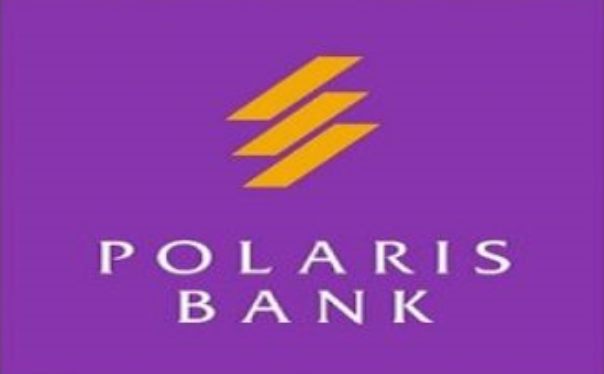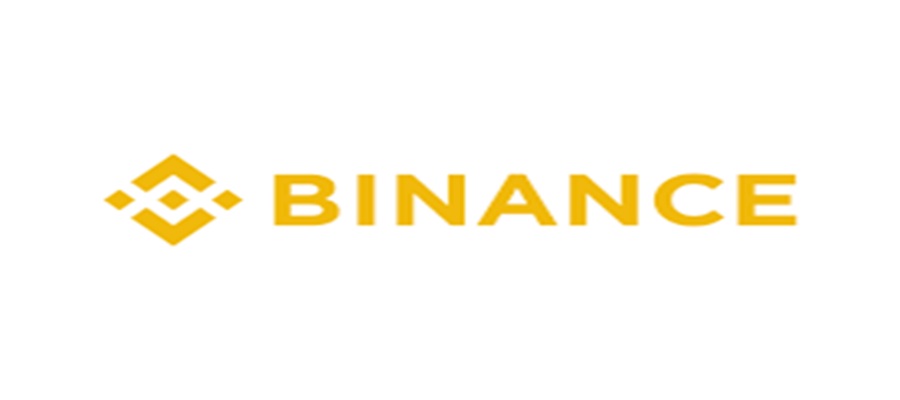E-Financial
Experts @ Polaris Bank Webinar Outline Strategies for Women to Build Wealth

Three accomplished Nigerians and leading authorities in government and finance sectors; Yewande Sadiku, Osayi Alile and Teju Abisoye have jointly enjoined Nigerian women to explore multiple investment opportunities available to build a sustainable wealth that would last generations.

The trio gave the advice at a webinar organised by Polaris Bank on Tuesday in Lagos as part of activities lined up to celebrate the Women’s Month in line with the International Women’s Day celebration with the theme #choosetochallenge.
The webinar which held under the aegis of the Bank’s gender-based product, Polaris Pearl, focused on understanding the role of investment in wealth creation and the importance of taking financial responsibility.
According to Ms. Sadiku, executive secretary of Nigerian Investment Promotion Commission (NIPC), “For women to attain financial fitness, they have to build passive income and focus on multiple investment streams to realise the future of their dreams”.
Drawing a metaphor, the NIPC Boss and erstwhile senior Investment Banker explained that “In building passive income, you shouldn’t eat your seed, rather, plant it and let it grow to a tree, so you can have many more to eat, plant and grow”.
Using personal examples to illustrate how she built her wealth starting out as a young Banker at age 20, Ms. Sadiku explained that she seized the moment and had a vision of the life she wanted to live and started building passive income through multiple investment windows; setting aside a chunk of her earnings in buying stocks, investing in mutual funds as well as putting away her bonuses and salary increments in fixed deposits, which she later invested in landed properties and real estate.
On her own part, Ms. Alile, who runs Aspire Coronation Trust Foundation, tasked Nigerian women to start saving from the moment they become conscious of the need to attain financial fitness. She urged them not to be in unnecessary competition that brings little or no value in the long run.
“Follow your lane and build a solid foundation that will stand the test of time especially when challenges come”, Ms. Alile advised.
She further reinforced the advantage of starting out children on a solid financial foundation with gifts – in form of stocks and mutual funds – just like she had while growing up, which helped set her up on the right path.
She encouraged participants to start their financial fitness journey now and get help where needed.
In her own presentation, Mrs. Abisoye, the CEO of Lagos State Employment Trust Fund, said that at LSTEF, they observed that women-run businesses have a larger impact on the community and society; adding that it is possible for women businesses to drive impact, making a case for empowering women for greater and more widespread economic impact.
She advised young ladies – either in paid or self-employment to start with the end in mind, stating that: “Once you begin with the end in mind, you are bound to succeed ultimately, even as she disclosed that there are multiple sources to fund a Start-Up as a budding entrepreneur.”
“You can grow wealth irrespective of employment status. You can start out with your personal savings and seed money from family and friends. She enjoined participants to start and grow their businesses before exploring the debt financing option. She further encouraged start-ups to use the acronym: S-service, I-impact, S-sales and I-investment as a mantra to ensure success as the eventual outcome.
Earlier in his welcome address, Mr. Innocent C. Ike, acting managing director/CEO of Polaris Bank, explained that that the webinar was put together to address pertinent issues that border on ‘Women and Growing Wealth’.
Mr. Ike noted that women empowerment and development is core to our sustainability goals and a key focus area of “our social investments and business objective as a Bank. We have had some interventions in this area for impact”.
“Our partnership with the International Women’s Society, Lagos State Ministry of Women Affairs and Poverty Alleviation, Societal Healthcare Organisation, and a host of others, are all efforts geared towards empowerment of women,” he added.
The webinar which had over 1,000 participants following across multiple social platforms, was moderated by Mrs. Adebimpe Ihekuna, group head, Products and Market Development, Polaris Bank.
According to 2018 Credit Suisse Research Institute Global Wealth Report, women hold 40% of global wealth. The report stated that women’s share in wealth rose considerably over the 20th century.
Polaris Pearl is the Bank’s flagship gender-based product designed to cater to the banking needs of the everyday woman, with special focus on Professionals, Entrepreneurs and Homemakers.
The account is available in three (3) variants; Polaris Pearl Instant Account, Polaris Pearl Instant Plus Account and Polaris Pearl Account – Savings.
Polaris Bank is a future-determining Bank committed to delivering industry-defining products and services across all sectors of the Nigerian economy.
E-Financial
NAICOM Signs MoU with BPP to Deepen Insurance Compliance in Public Procurement

The National Insurance Commission (NAICOM), has signed a Memorandum of Understanding (MoU) with the Bureau of Public Procurement (BPP) for collaboration and strengthening of the insurance industry, in the area of public procurement processes.

The Commissioner for Insurance, Olusegun Ayo Omosehin, welcoming the Director-General of BPP, Adebowale Adedokun, and his delegation to NAICOM for a working visit, during which the agreement was signed, highlighted the role of NAICOM as the statutory regulator charged with supervising, regulating and promoting the growth of Nigeria’s insurance industry.
He further stated that NAICOM’s current reform priorities include policyholder protection, regulatory capacity building, legal modernisation, recapitalisation, and increasing insurance penetration.
He emphasised that the collaboration would reinforce the principles of public procurement and insurance practice in Nigeria. He noted that achieving President Bola Ahmed Tinubu’s vision of transforming Nigeria’s economy into a one-trillion-dollar economy required strong inter-agency cooperation.
He stressed that the commission’s reform objectives could not be fully realised without strategic collaboration with agencies such as BPP. The Commissioner further disclosed plans to establish a platform to monitor and verify insurance coverage for public procurement items and assured that insurance operators would strictly adhere to established rules and standards.
In his remarks, the Director-General of BPP, Adedokun, commended the ongoing transformation in the insurance industry, describing the Commission’s environment as serene and reflective of its readiness to support the Federal Government’s economic growth agenda.
Adedokun, welcomed the partnership and highlighted implementation as the critical next phase: “Signing MoU is only the beginning — what matters is delivery. BPP has moved to a fully digital submission model to speed approvals and reduce opportunities for corruption”, he stated.
E-Financial
Binance Cuts Illicit Activity Exposure by 96%, Leads Global Crypto Compliance Push

Binance, the world’s largest cryptocurrency exchange, has reported a 96 per cent drop in direct exposure to illicit activities between January 2023 and June 2025, underscoring its commitment to regulatory excellence and user safety amid Nigeria’s growing digital finance sector.

Binance
The exchange highlighted investments in a robust compliance framework, including over 580 global compliance professionals and 970 staff in related roles, advanced transaction monitoring, stringent Know Your Customer (KYC) protocols, and anti-money laundering (AML) systems.
These measures align with evolving regulations across key markets, including Nigeria, where crypto adoption surges despite Central Bank of Nigeria (CBN) guidelines.
Binance’s Chief Compliance Officer, Noah Perlman, said: “At Binance we’ve built a system that doesn’t just react to threats, it anticipates them. A 96% reduction in illicit exposure is a testament to our infrastructure and the 1,500+ professionals working behind the scenes to protect our 300M users.”
Key achievements include a 96.8 per cent plunge in sanctions-related exposure—from 0.284 per cent in January 2024 to 0.009 per cent in July 2025.
In 2025 alone, Binance responded to over 71,000 law enforcement requests, helping seize more than $130 million (over ₦200 billion) in illicit funds.
Collaborations with agencies like Europol, DEA, UK’s NCA, and national cybercrime units have dismantled ransomware groups, darknet markets, and trafficking networks.
Binance co-CEO Richard Teng added: “Our mission has always been to increase the freedom of money, but that freedom is only sustainable if it is built on a foundation of trust. By integrating compliance into our product DNA, we are proving that the world’s largest exchange can also be the most secure.”
The platform engages regulators and policymakers to shape balanced rules supporting innovation while prioritising transparency and financial integrity. Since 2017, Binance has served over 300 million users, publishing regular compliance updates to build trust.
Industry watchers note Binance’s efforts resonate in Nigeria, where crypto trading volumes exceed $50 billion annually, but challenges like fraud and regulatory scrutiny persist. The exchange’s progress could bolster confidence as the CBN refines fintech policies.
Binance reaffirmed its dedication to a safer crypto ecosystem through ongoing investments and partnerships.
E-Financial
Nigeria’s VAT Jumps 34%, CIT Soars 48% to ₦14trn in 9M’25 – NBS

Nigeria’s non-oil tax collections posted robust growth in the first nine months of 2025, with Value Added Tax (VAT) rising 34 per cent to ₦6.4 trillion and Company Income Tax (CIT) jumping 48 per cent to ₦7.72 trillion, bolstering federal revenue amid oil price volatility.

NBS
Data from the National Bureau of Statistics (NBS) showed VAT climbing from ₦4.77 trillion in 9M’24, reflecting stronger domestic consumption and imports. Quarterly trends indicated a slight 1.4 per cent dip to ₦2.03 trillion in Q2’25 from ₦2.06 trillion in Q1’25, followed by a 10.66 per cent rebound to ₦2.28 trillion in Q3’25—a 28.1 per cent year-on-year gain.
In Q3’25, local VAT hit ₦1.12 trillion, foreign VAT ₦680.23 billion, and import VAT ₦479.79 billion. Sectorally, Administrative and Support Services led with 89.28 per cent quarter-on-quarter growth, trailed by Arts, Entertainment and Recreation (82.49 per cent) and Human Health (32.4 per cent). Real Estate contracted sharply by 51.33 per cent. Manufacturing dominated contributions at 25.89 per cent, followed by Information and Communication (18.77 per cent) and Mining/Quarrying (14.85 per cent).
CIT followed suit, surging from ₦5.22 trillion in 9M’24. It stood at ₦1.98 trillion in Q1’25, leaped 40 per cent to ₦2.78 trillion in Q2’25, and grew 5.7 per cent to ₦2.96 trillion in Q3’25—a 67.19 per cent year-on-year rise. Domestic CIT reached ₦1.21 trillion in Q3, while foreign CIT hit ₦1.75 trillion, underscoring multinational firms’ role.
Economists attribute the uptick to improved tax administration, digital tracking, and post-reform consumption, though sectoral disparities signal real estate headwinds. The gains support President Tinubu’s revenue diversification drive, reducing oil dependency as global crude fluctuates.
NBS data highlights non-oil taxes’ potential to fund infrastructure and social programmes, with analysts eyeing sustained momentum into 2026.

 Telecom3 days ago
Telecom3 days agoSunil Bharti Mittal Conferred GSMA Lifetime Achievement Award for Transforming Global Telecommunications

 Telecom3 days ago
Telecom3 days agoWhy Digital Trust Matters: Secure, Responsible AI for African SMEs?

 E-Business3 days ago
E-Business3 days agoJumia Tech Week 2026 Begins with Tech Deals on Smartphones, Electronics, and Everyday Technology

 General News3 days ago
General News3 days agoKrishnan Exits Africa Data Centre to Embark on Professional Chapter

 E-Financial2 days ago
E-Financial2 days agoNRS Targets N40trillion in Tax, Royalty Revenue in 2026

 Telecom3 days ago
Telecom3 days agoHouse Probes Fintech Regulation via Public Hearing on New Commission Bill

 News3 days ago
News3 days agoAfDB Supports Francophone Africa Start-ups with €6.5M

 Broadcasting3 days ago
Broadcasting3 days agoNCAA Orders Overland Airways to Refund VAT Charged on 2025 Tickets




















